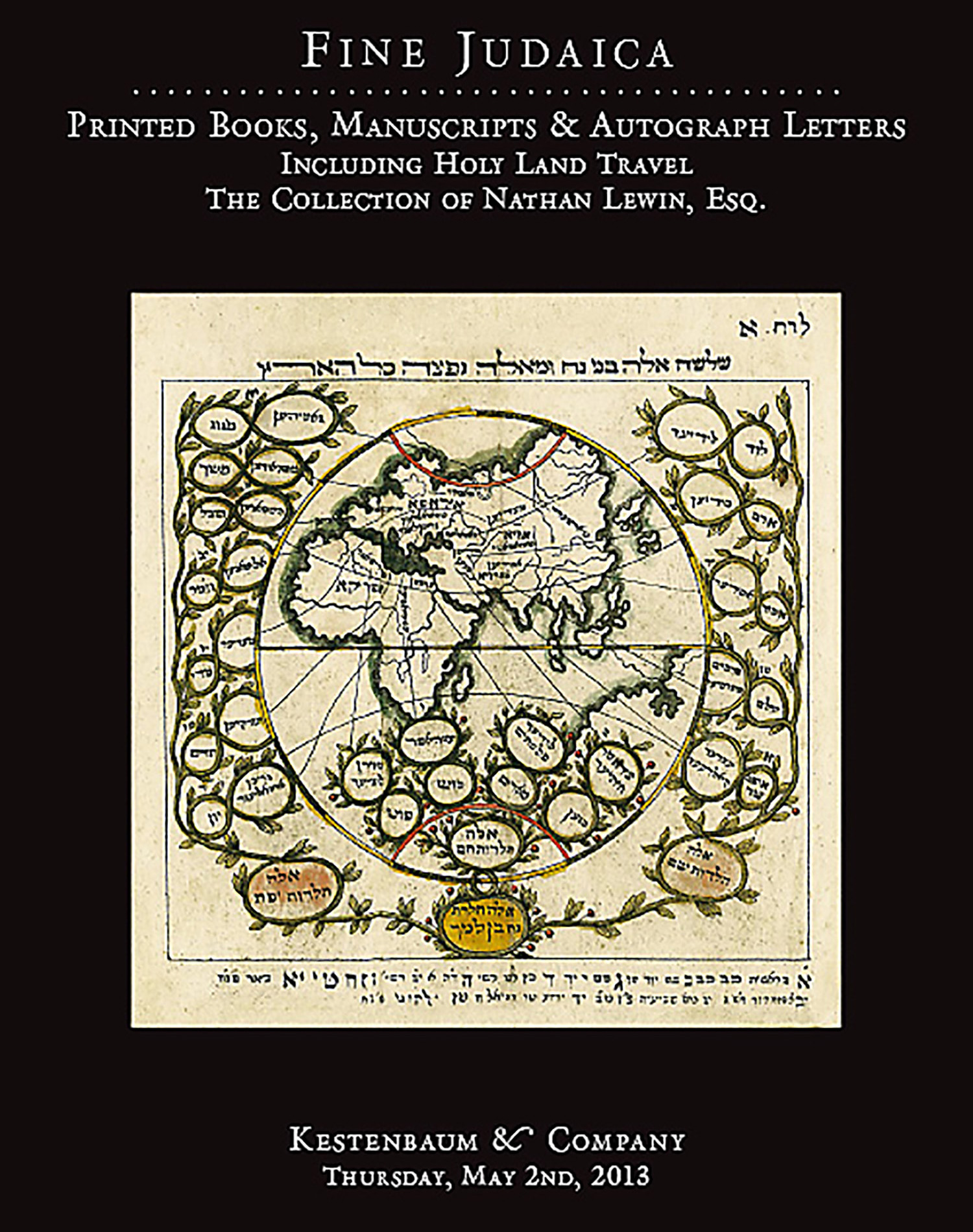Pinkas HaKahal.

AUCTION 58 |
Thursday, May 02nd,
2013 at 1:00
Fine Judaica: Printed Books, Manuscripts and Autograph Letters
Lot 373
(KARLSBURG)
Pinkas HaKahal.
Karlsburg: 1835-70
Est: $4,000 - $6,000
PRICE REALIZED $16,000
Pinkas (ledger)of the Jewish community of Karlsburg, Transylvania. Contains rules and regulations of communal and religious affairs, minutes of meetings, summaries of arbitrations, contracts and official documents.
This Pinkas contains much historical material of interest pertaining to the economic, social and religious life of the Jews in Karlsburg. Highlights: On pp. 23-31 are records of Din Torah arbitration pertaining to divorce, inheritance proceedings, conflicts between business partners and other matters. These are signed by the Rosh Hakahal, one of the Tuvei Hakahal and the Dayan. * Terms of contract for an individual hired to serve as Chazan and Shochet (p. 37). Delineates his duties as Chazan along with his responsibility to train a choir. The contract also notes the extra income the Chazan is entitled to for such occasions as singing at weddings and memorial services. In addition to his synagogue duties, he is to share Shechitah responsibilities and the manuscript even notes which cuts of meat he is entitled to. However, during the holidays from Selichoth until after Sukoth he is not permitted to slaughter. * An important Rabbinical contract dated 1846 with the newly elected Chief Rabbi Avraham Friedman. Contains clauses and conditions recording the Rabbi’s professional responsibilities and the duty of the community to support a Yeshiva. Another paragraph cites their responsibility to provide for R. Yechezkel Paneth’s widow and her daughter. Signed by Rabbi Friedman, 17 communal leaders and Rebbetzin Paneth (pp. 118-119). * A further paragraph relates an incident of an individual who took issue with a halachic ruling of the Rabbi. The Beth Din penalized this show of disrespect by removing from the gentleman his title of “Moreinu” until such time that he appeases the Rabbi. * Regulations concerning taxing kosher meat distribution, and the relationship between the Rabbi, the community and the ritual slaughterers is on p. 129. * Education curricula for children in the year 1861 are discussed on p. 256.
Karlsburg’s celebrated Rabbi at this time was R. Yechezkel Paneth (1783-1845), a disciple of R. Baruch Frankel Teumim of Leipnik and R. Samuel Landau, son of the famed Noda B’Yehudah and chief dayan of Prague. He developed an interest in Chassidism following visits to the Chozeh of Lublin and the Maggid of Koznitz and then became a disciple of R. Menachem Mendel of Rymanow. In 1823, R. Yechezkel Paneth was appointed Rabbi of Karlsburg and subsequently transformed Transylvania into a thriving base of Chassidic activity.
Also known as Alba Iulia, Karlsburg, was regarded as the Jewish capital of Transylvania. See EJ vol II col. 518-519. An in-depth study of the material in this ledger is essential for an understanding of Transylvanian Jewry in the 19th century.
